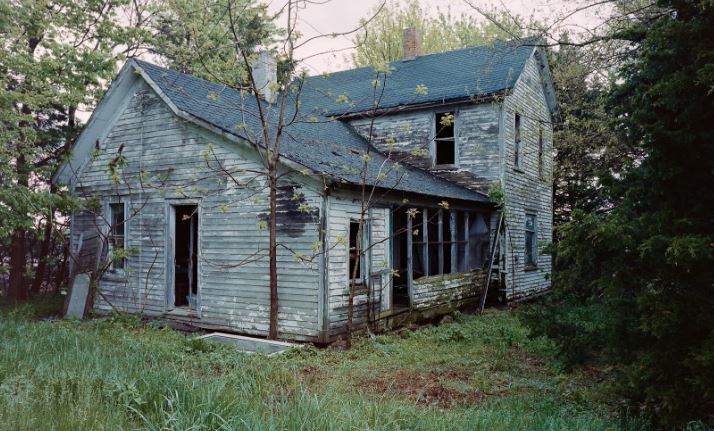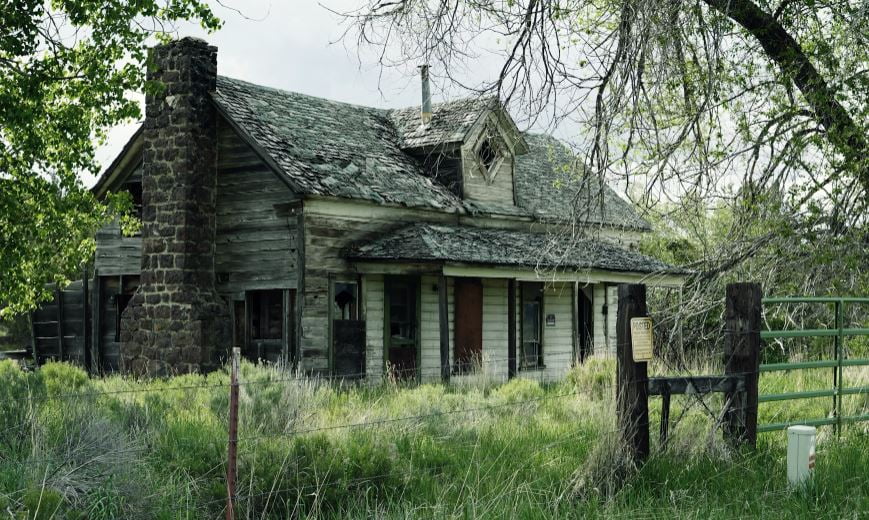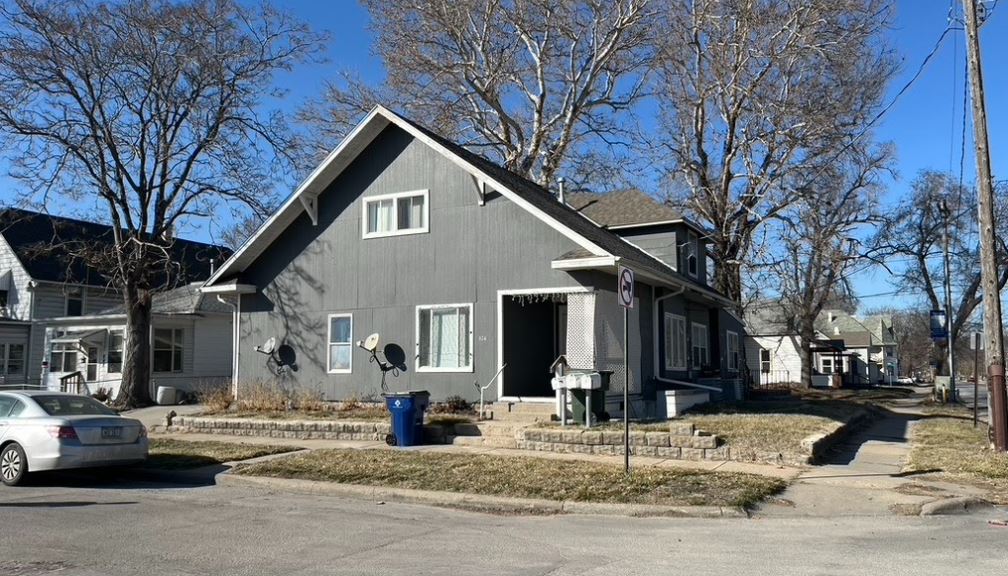If you're stuck with an abandoned home, you're probably wondering what to do with it.
Abandoned or neglected homes can be a real financial headache, and it can attract vandalism, squatters, and rack up fines from the local government.
So it's a good idea to sell it.
In this post, I’ll go over the reasons why you should sell your abandoned property and give you a step-by-step guide on how to sell it.
What Is An Abandoned House?
An abandoned house is a residential property that's been left empty and uncared for by its owner, usually for a long time.
It's basically a house that nobody lives in anymore and has fallen into disrepair.
There can be many reasons why a house gets abandoned. Here are a few common ones:

- Inheritance: Sometime a family member will pass away and the person inheriting the home has no interest in the property and sometimes forgets or never finds out that they have inherited a property.
- Financial problems: Maybe the owner couldn't afford the mortgage payments anymore and had to leave.
- Foreclosure: This is a legal process where the bank takes back ownership of the house because of unpaid loans.
- Personal reasons: Sometimes life throws curveballs, and the owner might have had to move away for a job, family situation, or other reasons.
If the state can't find the owner after a set amount of time, they will eventually take control of these properties.
Why Should You Sell Your Abandoned Property?
There are a lot of reasons why you should sell rather than hold onto a neglected property:
It’s A Financial Burden
Abandoned homes can be like bottomless money pits, constantly draining your finances.
You're on the hook for unpaid taxes, utility bills, homeowner's association fees, and piling up fines from the city.
The longer the property stays empty, the worse it gets.
Plus, vacant places are easy targets for vandalism, break-ins, and other crimes, which means more money spent on repairs and cleaning up.
Some local governments might even slap on extra fees and penalties just for abandoned properties to push owners into doing something about them.
Property Depletion
Neglected properties can quickly fall into a state of disrepair.
Without keeping up with maintenance, all sorts of problems can pop up like water leaks, structural damage, mold growth, and general deterioration.
These issues don't just make the property less valuable but can also be dangerous for anyone who goes inside.
Repairing these can get expensive.
Liability Concerns
As the legal owner of the abandoned property, you could potentially be held liable for any injuries that occur on the premises, even if you are unaware of the incident.
This liability extends to invited guests, trespassers, or squatters who may take up residence.
The longer a property is abandoned, the higher the chances of these people coming in and putting themselves at risk of injury from unsafe conditions like unstable floors/ceilings, exposed wiring, or other hazards.
Health Consequences
Abandoned properties can pose significant health risks to the community too.
Without proper maintenance, they can become breeding grounds for pests like rodents and insects, which can carry diseases and contaminate the surrounding area.
Plus, overgrown grass and trash piled up around can increase the risk of fire hazards.
And, abandoned buildings can attract criminals, making the area more stressful and affecting people's mental health.
It's a Non-Performing Asset
From an investment standpoint, hanging onto an abandoned residential property makes little financial sense.
A vacant home produces no income yet still carries recurring costs.
Plus, with each year the home sits empty, it deteriorates further, eroding any remaining market value.
So don't wait till the asset is wasted, sell it - even at a discount.
This way, you can at least get back some of the money you put into it and avoid pouring more money into something that's not giving you any returns.
Diminishing Neighborhood Value
Letting a property fall apart isn't fair to your neighbors either.
An abandoned home not only looks bad, but can also bring down the property value of all the other homes nearby.
This usually leads to pressure from neighbors, community groups, and local government to do something about the problem.
If nothing's done, there could be fines, liens, or even the government taking over the property.
Squatters
Abandoned properties are the perfect target for squatters.
These are people who move in without your permission and don't pay rent.
Sometimes squatters can actually try to claim they own the property through a process called "adverse possession" if they establish themselves and maintain the property for a certain period.
This can cause legal problems and could even be dangerous.
How To Sell Abandoned Property
Here’s how to sell abandoned and neglected properties:

#1 Sending Notices
If you’re a landlord, you must follow the right legal steps before selling an abandoned property.
You need to send notices to the tenant or previous occupants, letting them know your plan to sell any remaining items and what they need to do to collect their belongings.
Usually, you'll have to give them about 28 days' notice, but it really depends on your state and city rules.
This ensures you're following the law and gives them enough time to respond or get their stuff.
You should publish this even if you don’t have contact with the tenants anymore.
#2 Get Proof Of Abandonment
To show that the property was truly abandoned, you'll need evidence.
This might include written notices from the tenant saying they're leaving or any communication about it. And take photos showing the property's condition, especially if it's been neglected.
Any documents or letters showing the tenant hasn't been around or hasn't paid rent can also help prove abandonment.
#3 Assess Property Condition And Market Value
Before putting the property up for sale, thoroughly check its condition.
Look for any damage, repairs needed, or safety issues. This helps you figure out what work needs to be done to make it attractive to buyers.
Also, research similar properties in the area to understand the local market.
Look at how much similar abandoned properties were listed for and actually sold for to decide on a fair asking price.
#4 Pricing
Getting the price right is important too.
If you ask too much, you might scare off buyers who don't want to pay extra for a neglected property. But if you price it too low, buyers might think there are big problems with it.
So consider things like the property's condition, where it is, and recent sales of similar properties nearby when you come up with a price.
It can also help to talk to a real estate agent or appraiser for advice on setting the right price.
After that - list it in the open market!
Sell To A Cash Buyer
If you want a quick and easy sale, think about selling to a cash buyer or a real estate company.
They usually buy properties as-is, so you don't have to spend time and money fixing them up.
This can be a good option if you don't want to deal with listing the property, waiting for buyers who need financing, or going through the usual closing process.
Cash buyers often close deals faster and might even cover some or all of the closing costs.
It's the most convenient way to sell an abandoned property.

